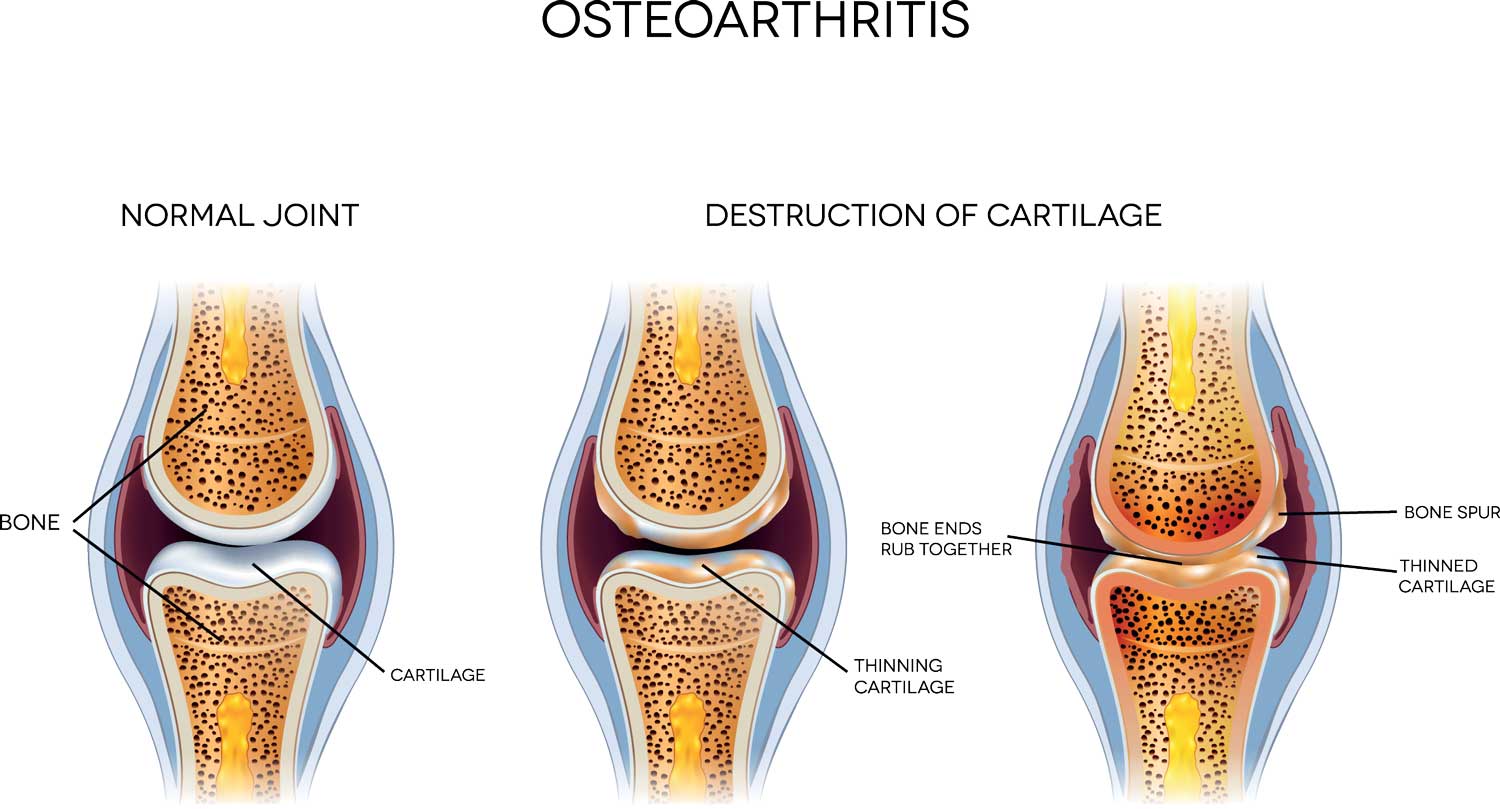Partial and Total Knee Replacement: What’s the Difference?
The knee is amongst the largest joints in the body and plays a vital role in providing mobility. Osteoarthritis, a bone and cartilage destroying chronic disease, frequently occurs in the knee joints. Aging, accidents, and injuries to the knee are common causes of knee osteoarthritis.
When diagnosed in its early stages, knee osteoarthritis can be successfully managed in most cases without surgery. When the osteoarthritis reaches a severe stage, surgical intervention may become necessary. Partial and total knee replacement are procedures that may relieve pain and help patients resume a more active lifestyle. Factors such as age, activity level, location and extent of the arthritis present, play an important role in determining whether partial or full knee replacement is the appropriate procedure for you. Dr. Nicholas Alexander is an expert in both partial and total knee replacement procedures and has helped thousands of patients regain their quality of life.
Diagnosing Knee Arthritis
At Mahwah Valley Orthopedic Associates, Dr. Nicholas Alexander diagnosis and determines which treatment options are appropriate for your knee problems and lifestyle. A medical history is obtained, a physical examination is performed and multiple view x-rays are all part of the diagnostic workup used to make treatment decisions, and as to whether conservative or surgical treatment is appropriate. If surgery is a recommended treatment option, Dr. Alexander will discuss which surgical procedure will be best for you and your lifestyle.
Partial Knee Replacement
A partial knee replacement is performed when osteoarthritis affects only one compartment of the knee. Osteoarthritic bone and cartilage are removed using computer and Robotic Navigation and the diseased area are replaced with metal and plastic components. The procedure takes about 60 – 90 minutes and is performed under regional anesthesia. This is typically done as a same day surgery and recovery is often faster than that of a total knee replacement.
Total Knee Replacement
A total knee replacement is performed to replace the entire knee joint. Osteoarthritic cartilage and bone are carefully removed and articulating ends of the tibia (shin bone), femur (leg bone) and patella (knee cap) are precisely cut using computer and Robotic Navigation.
Trial implants are placed in the knee and the knee is evaluated to evaluate the bony and ligamentous anatomy and to confirm that the appropriately sized component are used to ensure the knee moves properly.
Methyl methacrylate cement is placed on the ends of the bones and the permanent metal and plastic implants are placed in their appropriate anatomical positions.
The procedure takes approximately 1 ½ hours and is performed under regional anesthesia. This can be done as a same day surgery, but typically 24 to 48 hours of hospital stay may occur, during which time physical therapy is progressing. Approximately 75-80% of patients return home and start home physical therapy the next day. They then transition to outpatient physical therapy and rehabilitation typically requires 8-12 weeks.
Making an Appointment
Total and partial knee replacement is one of the most successful orthopedic surgeries being performed today. Dr. Nicholas Alexander of Mahwah Valley Orthopedic Associates has performed thousands of total and partial knee replacements and helped thousands of patients return to an active lifestyle after a knee replacement. Contact our office to make an appointment at one of our convenient locations in Mahwah and Clifton, NJ.
Scheduling An Appointment
Dr. Nicholas Alexander is Board Certified and Fellowship Trained and an expert in treating osteoarthritis of the knee. Please do not delay a diagnosis. Contact our office today to make an appointment!

